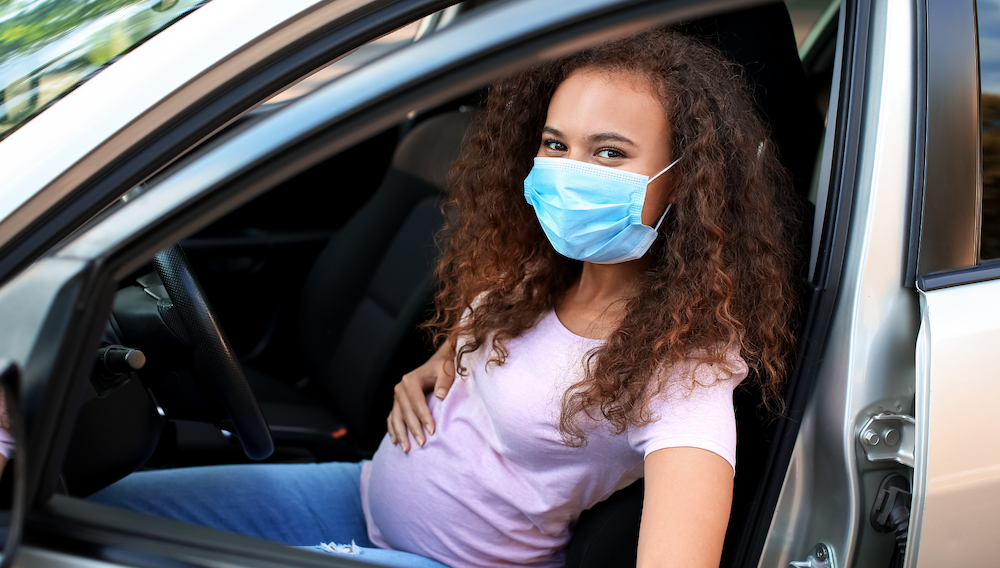As we begin the second year of the COVID-19 Coronavirus pandemic, pregnant women everywhere are making decisions about whether to pursue one of the COVID-19 vaccines. The good news is that several vaccine options are now available. Unfortunately, none of the clinical trials for these vaccines included pregnant women. Based on the science that is available to us today, the doctors at West Des Moines OBGYN Associates can help you decide if the COVID-19 vaccine during pregnancy is right for you. Let’s review what we know.
Pregnancy and other health factors put you at higher risk for severe COVID-19.
Reporting from hospitals has shown that pregnancy is an independent risk factor for increased ICU admission, the need for oxygen, and death from COVID-19. Those who are pregnant and also in one of the other risk factors, such as overweight, diabetic, or heart disorders, have particularly elevated risk factors. Remember that the list of high-risk individuals includes those who have had cancer, kidney disease, COPD, heart conditions, immune diseases, smoking, and sickle cell disease. In addition, people of color also fall into the higher risk category, so Black, Latino, and Hispanic women, in particular, could be at much greater risk. Check the CDC website to learn more about medical conditions that have been linked to more severe COVID-19 illness.
We also will point out that as your baby develops, your lung capacity will decrease, which could make COVID even more difficult and severe.
In summary, the fact that you are pregnant puts you at higher risk for severe illness from COVID-19. If you are not yet pregnant, keep these risk factors for Coronavirus in mind.

Three vaccine options are available in Iowa as of March 2021.
As you have most likely heard, Pfizer, Moderna, and Johnson & Johnson have all developed vaccines to help prevent getting sick from COVID-19. These have all started to be administered across Iowa, starting with the initial phase of elderly, front-line healthcare workers, and now, those with preexisting conditions such as diabetes, high blood pressure, and immune diseases.
Moderna and Pfizer both developed mRNA-based vaccines that require two shots spaced a couple of weeks apart. While these vaccines contain genetic material and encode a protein in the virus, they are not live vaccines. They degrade rapidly and bear no risk of genetic modification. Once both doses are received, they are about 95 percent effective in preventing the virus.
The Johnson & Johnson vaccine, which was actually produced by Janssen Biotech, requires only one dose in the form of a shot. This vaccine uses an adenovirus to carry the Coronavirus protein. This type of vaccine has been used for the Ebola virus, HIV, and RSV vaccines, and those were clinically tested in pregnant people with no adverse pregnancy outcomes. The Johnson & Johnson vaccine trials indicate that it is 100 percent effective in keeping trial participants out of the hospital, even if the person contracts Coronavirus.
The vaccines have very few incidences of major side effects.
All of the vaccines have been shown to be safe for most people. The side effects range from minor fevers to more severe allergic reactions. Anecdotally, some experience more symptoms following the second dose of the two-dose vaccines. When people receive their vaccinations, they will be asked to wait 15 minutes before leaving. This is so the staff giving the vaccines can watch you for allergic reactions.
Coronavirus self-reported data doesn’t show any major issues with vaccines in pregnant women.
Even though pregnant women weren’t included in the vaccine trials, the CDC has been collecting information from pregnant people who have contracted COVID-19 through the CDC v-safe program. More than 30,000 women have self-reported outcomes, including miscarriage, stillbirth, pregnancy complications, ICU admissions, infant hospitalizations, birth defects, and more. The observations from these reports show no concerning pregnancy outcomes.
The Vaccine Adverse Event Reporting System (VAERS) has collected data related to pregnant women who received the vaccine. Miscarriage was the most frequently reported adverse pregnancy outcome, but the numbers were within the expected rates. Based on these self-reporting systems, there have been no patterns that indicate safety problems with Pfizer and Moderna vaccines. Because it is so new, the Johnson & Johnson vaccine doesn’t have much data yet. We look forward to seeing more information as women report their experiences.
Contact your OBGYN to discuss the COVID-19 vaccine during pregnancy.
While we know that COVID-19 can make pregnant women sicker, there is no evidence that indicates the available vaccines present a greater risk than getting COVID-19. Please contact us to discuss your Coronavirus risk factors and to learn more about the vaccines.
Another trusted resource for Coronavirus information is the American College of Obstetricians and Gynecologists. Visit our Obstetrics page to find links to ACOG’s pages on the topic, including patient FAQs.
We hope this information helps clarify information about the COVID-19 vaccine during pregnancy. Please discuss this topic with your obstetrician.


